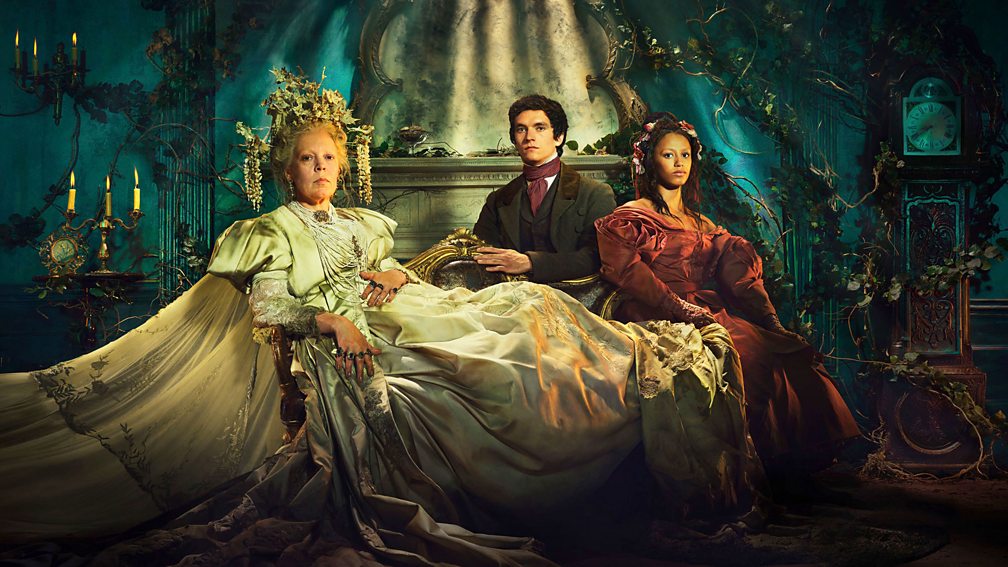The insanely irritating advertisements for BBC Sounds – 30 seconds to make the spirits sink – have recently included one exhorting us to watch the new BBC adaptation of Great Expectations – by the man who brought us Peaky Blinders!
It’s a real achievement to lose every vestige of humour in Great Expectations
Poor Dickens can’t pull in the punters on his own; it seems it takes Stephen Knight to draw a contemporary audience. Yep, the Stephen Knight who brought us A Christmas Carol, which should have made the Corporation think twice before letting him near Great Expectations, the first episode of which aired last night.
This is no adaption; it’s the violent hijack of plot, title and characters to turn the externals of Great Expectations into a vehicle for Stephen Knight’s obsessions about empire, colonialism, sex and class.
Do you really need a spoiler alert? Miss Havisham, the atrophied bride, isn’t just corrupting young Estella spiritually; here she’s an opium addict (her father’s fortune derives from slaves and opium, obviously) who takes Pip’s education as a gentleman in hand to the point of hiring Mrs Goodwin to sort out his sexual initiation.
Pip, when his fortune goes, attempts suicide in the opening scene of this wretched series: the first point at which the viewer thinks, ‘I don’t remember that’, but not the last. Mrs Joe isn’t just a woman on the rampage with ‘the Tickler’ to beat young Pip, but turns that cane to ends never envisaged by Dickens when she lashes Uncle Pumblechook’s bare bum with it in the upstairs bedroom. It’s not enough you see, for Pumblechook to be an appalling humbug; he must be a perv too. Biddy isn’t just a nice sweet girl; she becomes a Chartist, because they respect women, see?
And so it goes, right to the end, which, incidentally, would have surprised Dickens. He can’t leave well alone, can Knight. This novel of the corruption of a young man by snobbery and ambition is excoriating because lots of us can recognise in Pip’s callous upward mobility something of ourselves. It’s extraordinarily subtle about class, and the corruption of the soul that snobbery can bring about. In this adaption Mr Jaggers simply informs Pip that when he returns to his horrible little village he will be able to look down on all the inmates ‘from a very great height.’ In Dickens, the plebs have their revenge in the person of Trabb’s boy, the dreadful young apprentice who pretends to be utterly overwhelmed by Pip’s new finery when he first walks out in his brand-new gentleman’s suit. GK Chesterton described the encounter thus:
‘Pip thinks himself better than every one else, and yet anybody can snub him; that is the everlasting male, and perhaps the everlasting gentleman… Dickens has described perfectly how ill-armed it is against the coarse humour of real humanity – the real humanity which Dickens loved, but which idealists and philanthropists do not love, the humanity of cabmen and costermongers and men singing in a third-class carriage; the humanity of Trabb’s boy.’
But Stephen Knight has no room for Trabb’s boy, because he simply doesn’t fit with his flatfooted take on class. Actually, it’s a real achievement to lose every vestige of humour in Great Expectations; for there are some very funny elements even in its bleakest moments, but none of it survives Knight. Even Olivia Colman as Miss Havisham can’t redeem this travesty. By some distance, the best version of Great Expectations was David Lean’s 1946 film; if only Olivia Colman had been around then.
I won’t go on. But the obvious question is, why did the BBC commission someone who hates Dickens to adapt Dickens? They know Stephen Knight’s form. What are they trying to do? If this is the Corporation’s bid to show us its creative, Reithian side, just give us Gary Lineker.







Comments